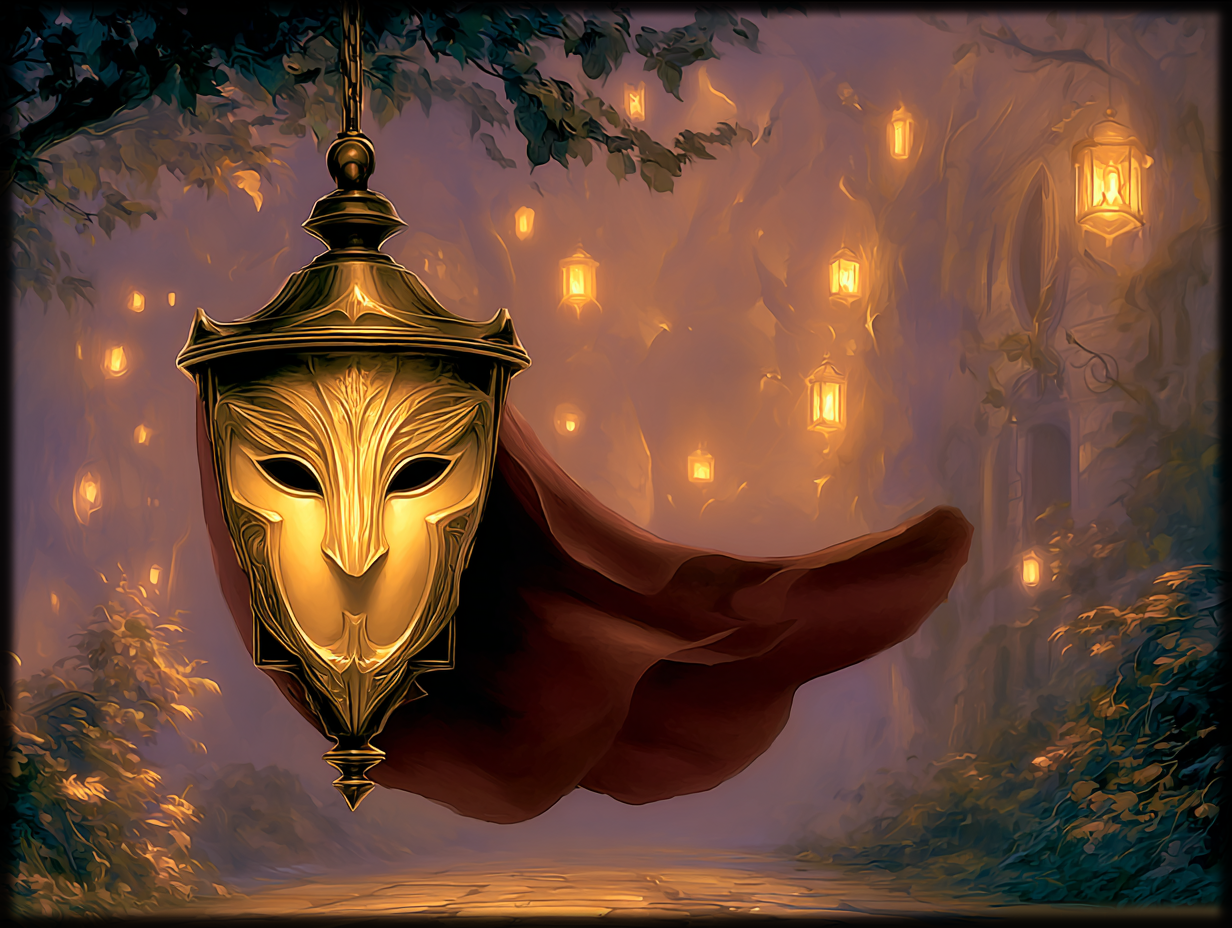Auctioneers of the Lantern Market
Business before Blood ~Motto of the Auctioneers
In the underbelly of Shal’Azura’s commerce, a shadowy cabal known as the Auctioneers of the Lantern Market held sway over the city’s clandestine exchanges of relics, oddities, and contraband. They were not, as their name suggested, a unified guild, but rather a volatile conglomerate of fiercely independent treasure hunters, cutthroat mercenaries, and the occasional disgraced academic, all operating under a truce as thin as the midnight fog that clouded the winding alleys of the market. The Auctioneers had no banner but gold, no loyalty except to the highest bidder, yet their reputation for discretion and ruthless efficiency drew patrons from across the fracture of Clouders and Earthers—powerful mages, noble houses in need of plausible deniability, collectors with appetites for the forbidden.
The Lantern Market sprang to life at dusk, as dozens of ghostly white lanterns illuminated the ancient stone arcades and stucco walls with a soft glow. The scene often resembled a cereus cactus, a rare plant known as the "Queen of the Night," celebrated for its large, fragrant white flowers that bloom only once and only at night. Here, in the tangled stalls beneath banners of silk and paper, the Auctioneers plied their trade with all the solemnity of a religious rite. Their faces were concealed behind intricate masks resembling the legendary Founders, and they adopted the Founders' honorifics as their own names. Their voices were magically altered, erasing any trace of accent and blending into the rhythmic flow of the auctioneer's chant.
Each member had a specialty: some hunted for magical armaments lost in the shifting sands of time, others trafficked in live specimens for wizardly experiments, a few specialized in the procurement of secrets—blackmail or prophecy, rendered portable as dust in a vial. All operated under the ever-watchful gaze of the Lantern Market’s unspoken law: Business before Blood.
To belong among the Auctioneers was to accept that trust was a currency in even shorter supply than ethics. Deals were struck in coded language, hands seldom uncloaked, and even the coin was often enchanted to carry a trace of poison or compulsion. Yet, amid the perpetual mistrust and politicking, the Auctioneers managed to broker not just goods, but the balance of power itself, shifting the city’s fate a little with every transaction.
Their mastery of this delicate ballet was legendary, and none embodied it so fully as the enigmatic figure known as the Helpful Founder, whose golden mask was fashioned after the image of PRT H.E.L.I.O.S. It was whispered in both bars and boardrooms across Eatifat that their rise had come at the expense of at least three prior Auctioneers, each now commemorated only by their absence and the price spike of their chosen wares. Such was the nature of the Lantern Market—fleeting, dangerous, and vital, like the flash of a knife in a crowded room.
If the Auctioneers had a patron saint, it was certainly the goddess of calculated risk, her altar built from the bones of those who mistook luck for strategy.



Comments